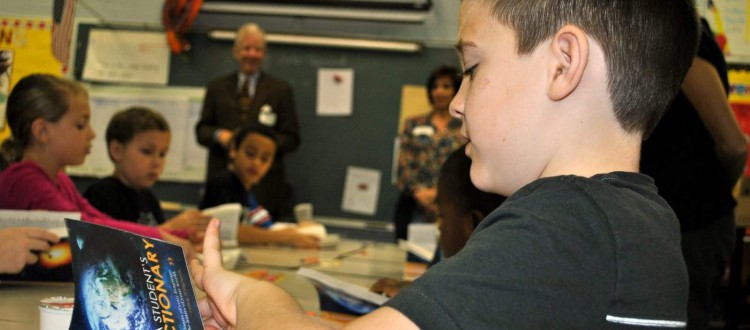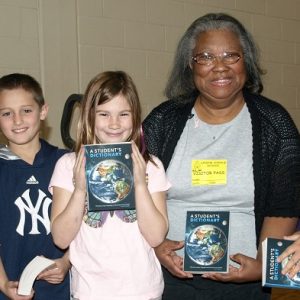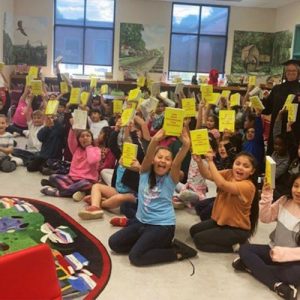La Plata Rotary Club Donates Dictionaries to Students
In a time of electronic readers and computers, students at Mary H. Matula Elementary School proved recently that a paperback reference dictionary is just as exciting, especially when it is free.
The La Plata Rotary Club handed out 79 student dictionaries to third-graders at the school as part of a long-running dictionary project the club takes part in.
The La Plata club in total delivered 1,000 dictionaries to 15 schools in the La Plata area. The Waldorf Rotary Club also took part in the dictionary project, delivering dictionaries to third-graders in 11 Waldorf-area schools.
Matula Principal Carrie Richardson said getting a dictionary in the third grade has become a rite of passage for students.
She said many students see their older siblings get their dictionaries and look forward to the day when they get their very own.
She said that at the beginning of the year third-graders ask teachers when will they get their books.
“They truly look forward to getting them. It’s the neatest thing to see,” Richardson said.
She said in this day and age of technology, “it’s crazy how important [the dictionaries] are to them.”
She said school staff teach students how to use a dictionary and the reference dictionaries are used as part of the instructional program at schools.
La Plata Rotary member Skip Mudd told students Monday that the books were theirs to keep and pointed out a sticker on the inside cover where they could write their names. Students quickly grabbed their pencils and began to claim ownership of their books.
One student hugged his book as Mudd and club member Paula Martino spoke of the many things other than words in the book. The student reference dictionaries include sections with maps, information about the solar system, units of measurement and more.
Mudd asked students to look up the word “googol,” which is the numeral 1 followed by 100 zeroes.
Familiar with the search engine Google, students first took guesses as to what googol means. Most guessed along the lines of a method of searching for things on the Internet. One student guessed maybe it was another name for the Internet.
Students not only learned what googol meant but were able to discuss why the popular search engine would have a similar name. Students guessed that maybe it was because the number of searchable words and answers on Google was a big number.
Students in each class thanked the Rotary for their new books.
Richardson said she notices that students use their dictionaries long after leaving the third grade.
“They really do take care of them and treasure them,” she said.






